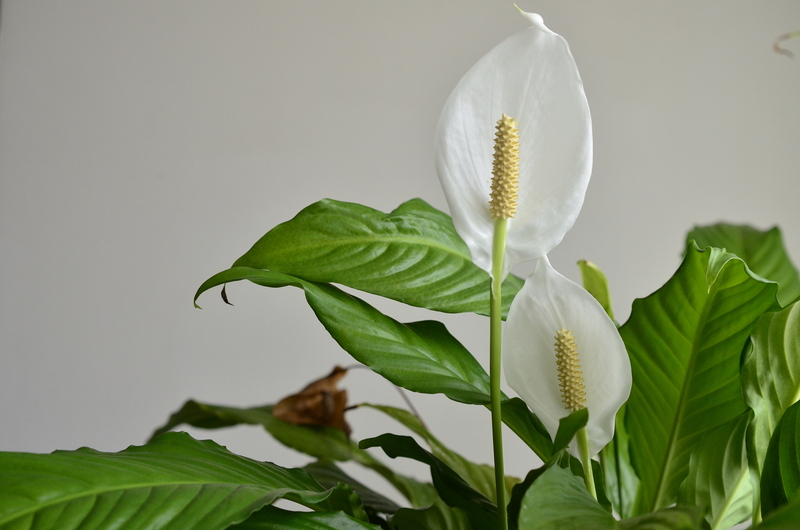Master the basics of herb gardening: soil, sunlight, and care
Posted on 22/06/2025
Master the Basics of Herb Gardening: Soil, Sunlight, and Care
Herb gardening is a perfect entry point into the world of home horticulture. Whether you aspire to flavor your culinary creations with fresh basil or enjoy the calming aroma of chamomile, mastering the essentials--soil, sunlight, and care--is the key to successful herb gardening. This comprehensive guide will walk you through every step, from choosing your soils and setting up your garden to caring for your favorite herbs year-round.
Why Start Your Own Herb Garden?
Herb gardens provide a world of benefits. Not only do fresh herbs enhance the taste and nutrition of your meals, but they also add greenery and fragrance to your living space. Many people find herb gardening both therapeutic and rewarding. Plus, growing your own herbs can save money and reduce food waste.
- Freshness at your fingertips - Enjoy the unbeatable flavor of snipped herbs.
- Health benefits - Most herbs contain antioxidants, vitamins, and minerals.
- Cost savings - A packet of seeds yields more than store-bought bunches.
- Sustainability - Grow your own and reduce packaging and transportation emissions.
- Decorative appeal - Herbs add beauty and fragrance indoors and out.

Choosing the Best Location for Your Herb Garden
Location is crucial to the success of your herb garden. Most herbs thrive when grown in spots that offer plenty of sunlight, good air circulation, and protection from harsh weather. Let's break down the essentials of site selection:
Outdoor Herb Gardens
- Sunlight: Pick a spot receiving at least six hours of direct sunlight daily. Mediterranean herbs like rosemary and thyme especially crave full sun.
- Drainage: Avoid low-lying areas where water might pool. Herbs hate having "wet feet."
- Accessibility: Place within easy reach for frequent harvesting and maintenance.
- Protection: Consider windbreaks or fences in exposed gardens to shield delicate plants.
Indoor Herb Gardening
- Window Sills: South or west-facing windows are ideal for maximum light.
- Grow Lights: Supplement natural light with LED grow lamps if you lack sunny windows.
- Air Circulation: Avoid stuffy rooms. Occasional gentle breezes (open windows or small fans) can reduce disease and encourage stronger growth.
The Foundation: Picking the Right Soil for Herbs
The phrase "herbs thrive in well-drained soil" is a gardening mantra for a reason. Healthy soil is the backbone of robust herb plants, supporting lush growth and potent flavor. Here's what you need to know:
Soil Texture and Structure
- Light and Loose: Most culinary herbs prefer sandy or loamy soils that drain quickly and don't get compacted.
- PH Levels: Herbs are adaptable, but a slightly alkaline to neutral pH (6.0 to 7.5) is generally best.
- Add Organic Matter: Blend in compost or well-rotted manure to boost fertility, structure, and moisture retention.
Improving Soil for Container Herb Gardening
- Choose high-quality potting mix - Most commercial potting soils are fine, but look for one formulated for vegetables or herbs.
- Add drainage agents - Mix in perlite or coarse sand to increase drainage.
- Use proper containers - Ensure containers have drainage holes, and avoid waterlogged saucers.
If your native garden soil is heavy clay or chronically damp, consider raised beds or large pots to give your herbs the right environment to flourish.
The Importance of Sunlight in Herb Gardening
Sunlight is essential to vigorous herb growth. Most culinary herbs originated in sunny Mediterranean climates and require at least six hours of direct light.
- Full Sun Herbs: Basil, rosemary, oregano, sage, thyme, and lavender all need robust sunlight to produce strong flavors and essential oils.
- Partial Shade Herbs: Parsley, cilantro, chervil, and mint tolerate a little less sun and can be grown where morning sun or dappled light is available.
- Adjusting Indoors: If you grow herbs on windowsills, rotate pots regularly to ensure even exposure. Supplemental lighting can make a huge difference in winter months.
Tip: Watch your herbs for signs of adequate or inadequate light. Leggy stems, pale foliage, or lack of flavor can indicate inadequate light, while scorched leaf tips may mean you need to provide some afternoon shade.
Watering and Moisture Management: Finding the Right Balance
Striking the right balance with water is critical for successful herb gardening. Most herbs like their soil to be damp but never soggy.
Top Watering Tips for Healthy Herbs
- Stick your finger in the soil. If the top inch feels dry, it's time to water.
- Water deeply and infrequently. Soak the soil enough to reach the root zone, then allow it to dry slightly before watering again.
- Morning is best. Water early in the day so foliage dries by evening, reducing fungal disease risk.
- Mulch for moisture. A thin layer of straw, bark, or compost helps keep roots cool and moist in the summer.
Feeding and Fertilizing Your Herb Garden
Herbs are light feeders, meaning they require much less fertilizer compared to vegetables or flowering plants. Too much fertilizer can even make your herbs grow quickly but dilute their essential oils, reducing their flavor and aroma.
How and When to Fertilize Herbs
- Go organic: Use compost, worm castings, or organic slow-release pellets once at planting time.
- Liquid feeds: Every four to six weeks, apply a half-strength liquid kelp or fish emulsion during the main growth period.
- Watch for signs: Yellowing leaves or stunted growth may signal nutrient deficiency, but always err on the side of underfeeding.
Never fertilize herbs right before harvesting. Allow plants time (at least a week) to process nutrients for the best flavor.
Pruning, Harvesting, and General Care of Herbs
Consistent pruning and harvesting keeps herbs productive and flavorful. Many herbs respond to regular snipping by growing bushier and lusher, rewarding you with bigger harvests over time.
Pruning Basics
- Pinch early and often - Pinch off the tips of young plants to encourage branching.
- Remove flowers - For most culinary herbs, remove flower buds to keep foliage taste fresh.
- Trim for health - Remove old, damaged, or yellowing leaves to avoid disease buildup.
Proper Harvesting Practices
- Morning harvest: Pick herbs in the morning for best flavor, when oils are most concentrated.
- Use sharp scissors: Make clean cuts above a set of healthy leaves to promote new growth.
- Avoid overharvesting: Never harvest more than one-third of the plant at a time.
Troubleshooting and Preventative Care in Herb Gardening
Even well-tended herb gardens sometimes encounter problems, but early attention and natural remedies usually keep issues in check.
Common Challenges
- Pests: Aphids, spider mites, and whiteflies are the most common. Knock pests off with a spray of water, or use insecticidal soap if needed. Introduce natural predators like ladybugs for organic control.
- Diseases: Overwatering or poor air circulation can lead to fungal issues like powdery mildew. Prune to improve airflow and space plants well apart. Remove infected leaves immediately.
- Environmental stress: Wilting or leaf scorch may indicate too much heat, sun, or wind exposure. Adjust position or add shade cloth as needed.
Preventative Strategies:
- Rotate crops: If you grow the same herbs each year, switch locations yearly to avoid soil pathogen buildup.
- Sanitize tools: Clean scissors and shears between use to minimize disease spread.
- Stay observant: Regularly inspect your garden for changes in color, shape, or leaf texture.
Growing Herbs Indoors Year Round
Indoor herb gardening allows you to enjoy fresh flavor and greenery in every season. Here are some tips for maximizing your indoor garden's success:
- Select suitable varieties: Chives, mint, parsley, basil, and oregano are generally easiest to grow indoors.
- Use the right pots: Shallow-rooted herbs thrive in wide, shallow containers with drainage holes.
- Keep humidity up: Central heating can dry herbs out; group pots together or use a pebble-filled tray with water to increase local humidity.
- Rotate regularly: Turn containers weekly to prevent lopsided growth.

Top 10 Easy Herbs for Beginners
- Basil - Fast-growing and delicious in salads and pastas.
- Chives - Mild onion flavor and pretty purple flowers.
- Mint - Great for drinks and desserts, but keep in a pot to contain its spread.
- Parsley - Perfect garnish for any dish.
- Cilantro - A must for salsa and Asian cuisine.
- Dill - Essential for pickling and flavoring fish.
- Oregano - Excellent for pizza and Italian dishes.
- Thyme - Compact, drought tolerant, and tasty with poultry and vegetables.
- Lemon Balm - Uplifting citrus scent, great as tea or salad green.
- Sage - Hardy, flavorful herb perfect for savory recipes.
Conclusion: Start Your Herb Gardening Journey Today
Mastering herb gardening isn't difficult--it's about understanding the basics of soil, sunlight, and regular care. By focusing on quality soil, providing ample light, and maintaining consistent watering and harvesting routines, you'll enjoy lush, flavorful herbs all season long. Whether you have a sprawling backyard or a sunny kitchen windowsill, there is an herb gardening solution for your space.
Ready to embark on your herb gardening adventure? Invest in some seeds or starter plants, prepare your soil, and watch as your knowledge grows along with your lush, fragrant, and bountiful herb garden!
For more in-depth herb gardening tips, techniques, and seasonal care guides, bookmark this page and visit us regularly. Happy gardening!
Latest Posts
Garden Transformations on a Budget for the Time-Strapped
Steps to a Playful and Secure Garden for Children
Unlock the Secrets to Designing Breath-Taking Garden Seating

